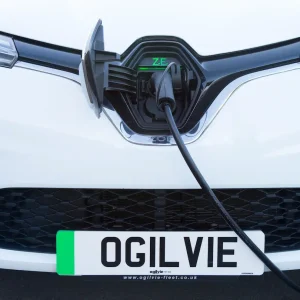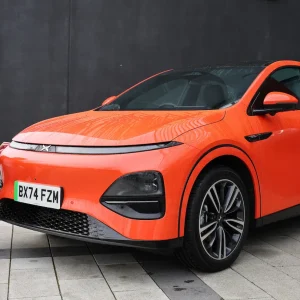Suzuki is about as retail-focused a brand as you’ll see in the UK, with less than 5% of its registrations in the corporate sector. But it wants to quadruple that figure with a combination of new products, new initiatives and an increased presence in the contract hire and leasing arena.
The firm admits that 20% is still quite a modest figure, in an industry where the average is around 50%. But this is new ground for Suzuki. The catalyst was the launch of the S-cross crossover 12 months ago, a vehicle described as the “trigger car to enter into fleet” by Suzuki’s sales and marketing director Dale Wyatt, and also the first Suzuki to get a specific fleet launch to industry influencers with the goal of ensuring it got the RVs the firm was looking for.
“We know we’ve got a big opportunity with fleet and looking ahead we have a suite of fleet-type products,” he says. “Knowing these were coming, with big changes in low CO2, we knew if we did the right things and got the RVs the cars deserve, and manage whole life cost, then there are opportunities in fleet.”
Having spent the last year establishing the S-cross in the crossover sector pioneered by the Nissan Qashqai, thoughts are now turning to the Vitara, revealed at the Paris motor show in September and arriving in the UK next April.
“That gives us the chance to build on the success of S-cross, because the two fastest-growing segments are crossover and small SUV,” continues Wyatt, explaining that the Vitara will be shorter in length but taller than the S-cross, with more outgoing styling. “The S-cross is a matrix car. It’s got a good boot. Its CO2, MPG and passenger legroom all do well versus the competition, but it hasn’t got the emotive design of a Kia Sportage or Range Rover Evoque. This car has got that,” Wyatt declares.
He identifies the Skoda Yeti and Vauxhall Mokka as key Vitara rivals, a view echoed by Andrew Wale, Suzuki national corporate sales and remarketing manager. “If you look at the competition, it stands out as being quite individual – the Renault Captur and Nissan Juke are stylised but not necessarily practical and the Skoda Yeti is practical but not as stylised,” says Wale. “This is an affordable SUV with all those qualities and good BIK and fuel economy.”
White label leasing
The next step for Suzuki’s progression into the business-car sector is to launch a white-label contract hire proposition, something that’s in the pipeline in conjunction with Lex Autolease and will be developed during 2015. “It gives us a permanent infrastructure, rather than being managed by a multi-label call centre.
The phone gets answered as Suzuki and all the paperwork is Suzuki. It’s a sign of Lex’s confidence in us because it costs them to do it,” continues Wyatt. The plan is for that to be in place before the ‘step-up’ with the arrival of the Vitara, when Suzuki expects increased interest from user choosers and small businesses.
The Lex project and the S-cross achieving over 1000 registrations through Motability are giving Suzuki credibility, the firm’s executives claim. “It was clear to see when you go into major leasing companies that are dealing with all manufacturers, and along comes little old Suzuki who is synonymous with 4x4s, that we had to make our mark and we did that with S-cross,” explains Wale. “Finally now people want to come and talk to us about our cars being part of their business.”
The soft approach
Rather than pushing its dealers into the competitive long-burn world of SME sales in their locations, Suzuki is trying to head down the affinity sales route of introducing its dealers to the corporate sector.
“We’re giving dealers the opportunity to deal with fleet in a non-threatening way,” explains Wale. “Deal with a business customer that wants to take two and gain confidence through that to expand.” By suggesting the idea of a Suzuki as a business vehicle to people the firm or its dealers already have relationships with, it can gain an easy in. Wyatt says that the firm started by looking at the captive audience of its car, motorcycle, all-terrain vehicle and marine contacts, before suppliers such as creative agencies and breakdown services.
“It’s very difficult to set up a fleet team but easy to have a conversation with the guy who services the coffee machine or cleans the windows. That’s an easy business-to-business conversation to have,” he continues. “We have 120 dealers and want to encourage all of them, not just 15 or 20.”
Coming to a fleet near you
Suzuki isn’t just about crossovers and off-road vehicles. It has a long heritage of small cars, and the next part of that story will arrive with the launch of the Celerio next year.
“There will be fleet opportunities with the likes of community nurses,” said Suzuki’s Dale Wyatt. “It’s the most practical car in the segment with a high driving position, really low CO2 and space; it’s a really good straightforward proposition.” He also claimed it would be the most efficient petrol engine in the city car sector when the Celerio hits the UK, although figures aren’t yet available.
The Japanese firm is also adding a new Dualjet petrol engine to the supermini Swift range, with the 90hp 1.2-litre engine cutting emissions by 16% to 99g/km. That figure has helped make the decision to end sales of the diesel Swift, which only accounted for 5% of sales.





